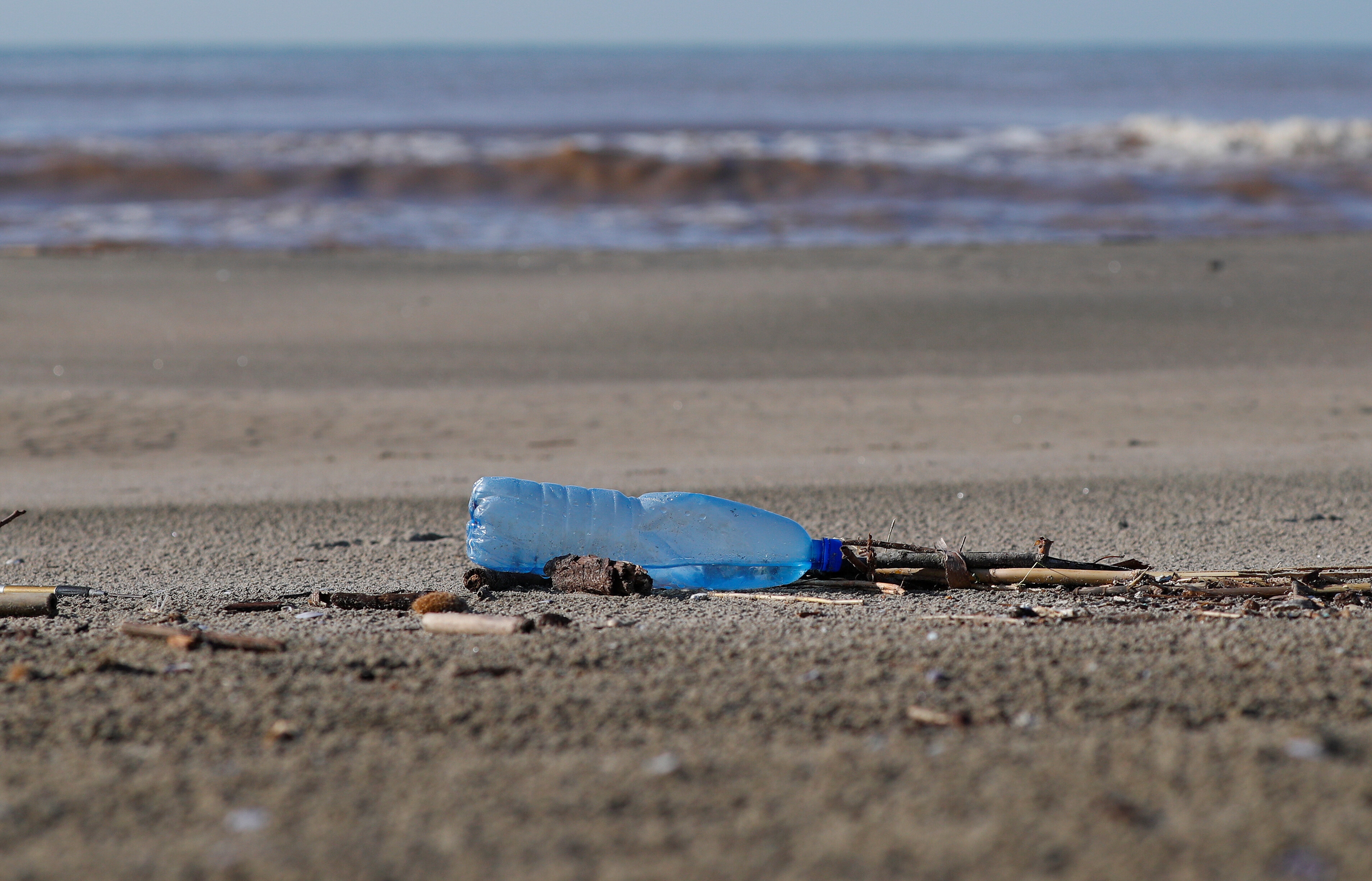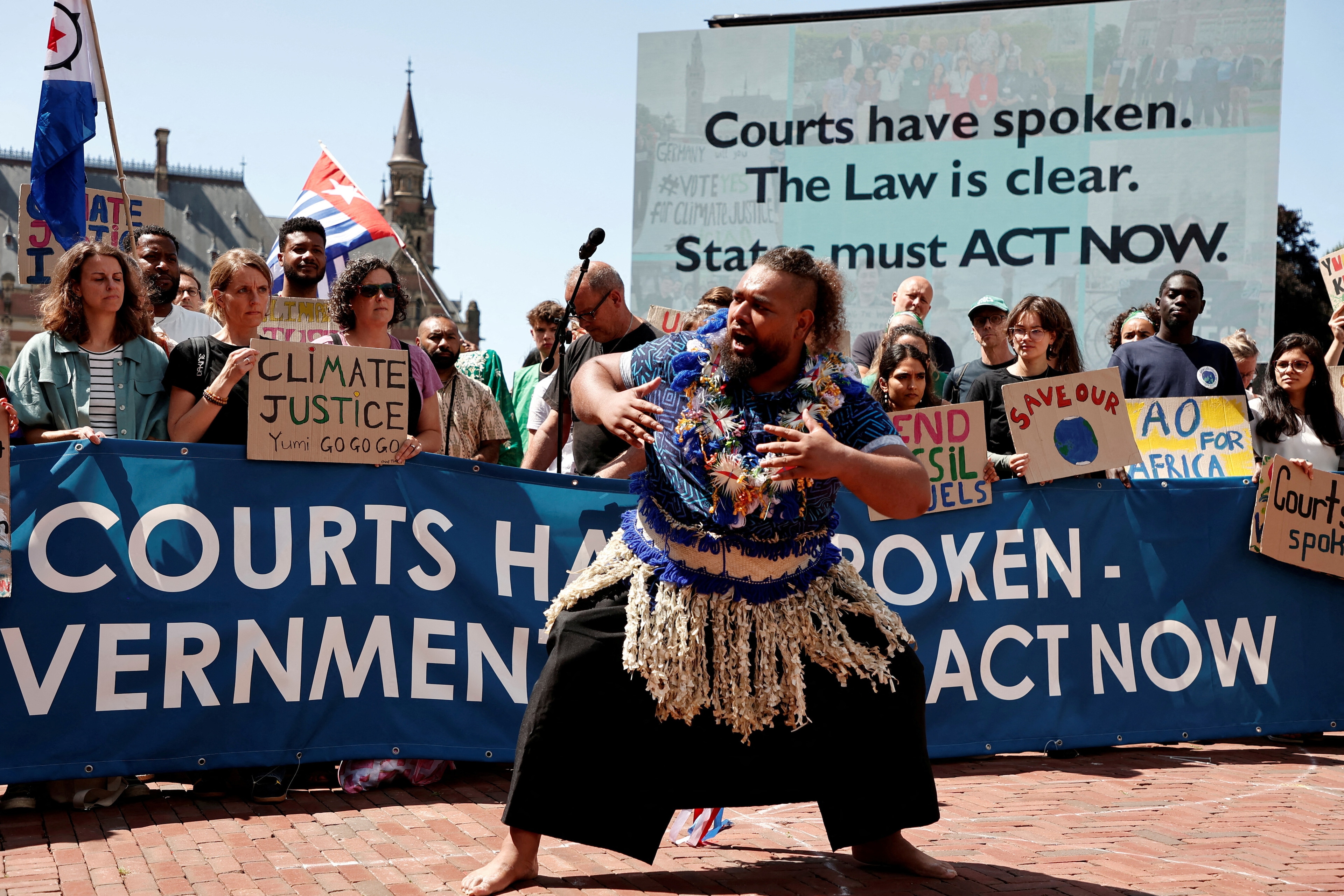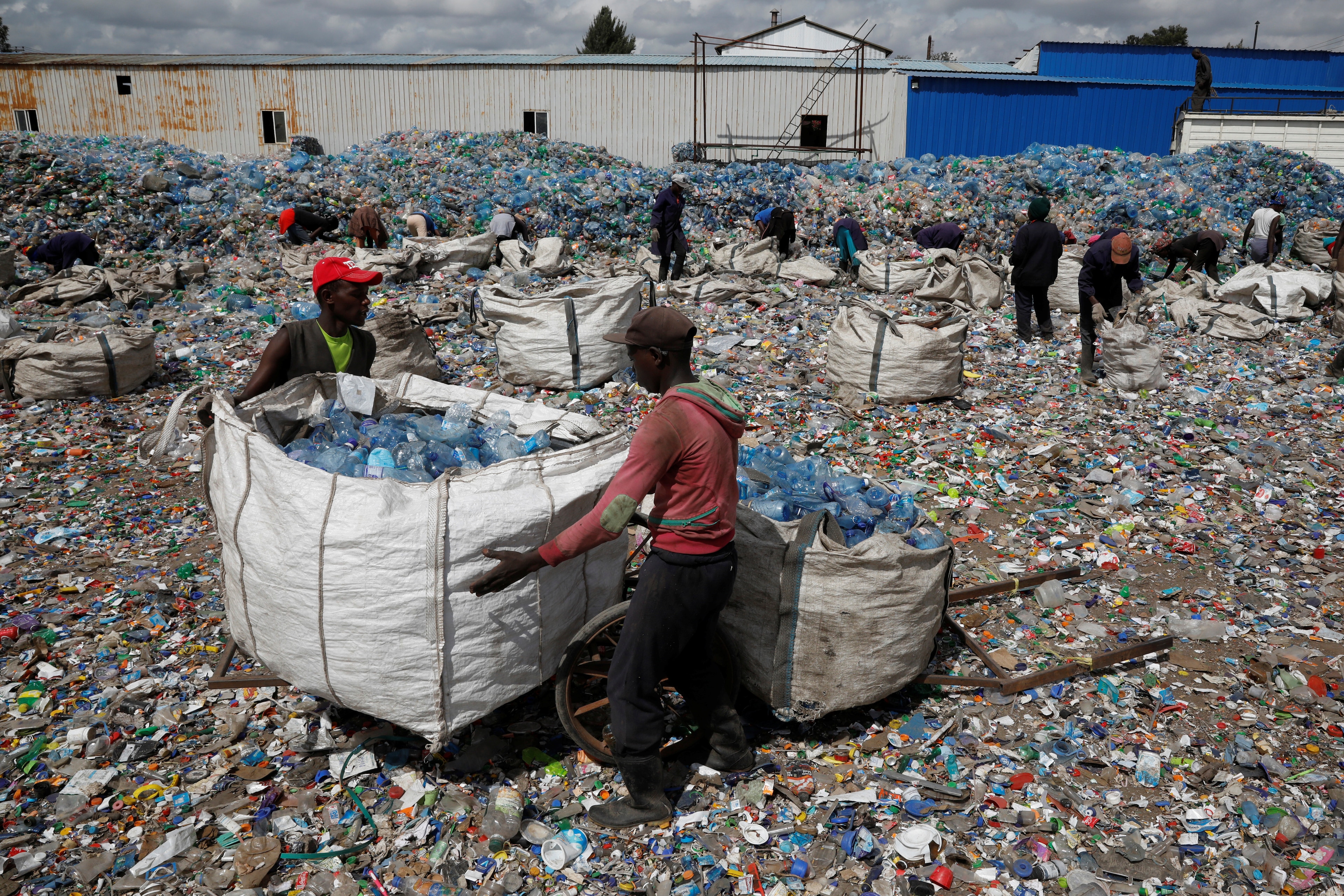6 sustainable development strategies that support the transition to a nature-positive economy
Leading companies are embracing nature-positive strategies that boost sustainability but also make business sense.
Image: Getty Images/robertsrob
Stay up to date:
Forests
- Nearly half of global GDP – approximately $44 trillion – is dependent on nature, highlighting the urgent need for nature-positive business strategies.
- Businesses must step up as leaders in sustainability innovation, not only to mitigate risks but also to seize new opportunities and set industry standards for nature-positive practices.
- The latest World Economic Forum Spotlight on Nature report features impactful case studies covering strategies from sustainable forestry to circular economy initiatives – these examples show how companies are transforming their operations to support a nature-positive future.
Transitioning to a nature-positive economy has never been more critical. Environmental degradation and biodiversity loss are accelerating at alarming rates with profound implications for ecosystems and human livelihoods. Further, with nearly half of global GDP – roughly $44 trillion – moderately or highly reliant on nature, there is an urgent need for businesses to adopt nature-positive practices.
The Kunming-Montreal Global Biodiversity Framework, endorsed by 196 countries at COP 15 in 2022, sets an ambitious goal to halt and reverse nature loss by 2030. But the latest World Economic Forum Global Risks Report highlights environmental risks, including nature loss, as among the most severe threats facing the world over the next decade. Natural carbon sinks, such as forests and oceans, for example, absorbed around 55% of annual anthropogenic carbon emissions in 2019. But these ecosystems are increasingly threatened by deforestation, marine degradation and soil erosion.
Accept our marketing cookies to access this content.
These cookies are currently disabled in your browser.
Many companies rely on these natural systems for the resources that they use to satisfy their customers. As a result, business must be pivotal in addressing sustainability challenges by driving the transition to a nature-positive economy.
Here are six strategies that leading companies are currently employing to help advance this critical shift:
1. Prioritizing sustainable forestry and biodiversity conservation
Forests are essential for climate regulation, biodiversity and livelihoods, but deforestation and degradation pose significant threats to these ecosystems. That’s why companies like furniture retailer IKEA, thought to be the world’s largest user of wood, is pioneering sustainable forestry practices for its products.
Such an approach is not only helping to preserve biodiversity, it also helps IKEA meet growing consumer demand for eco-friendly products. This shows that sustainability can be integral to business success.
2. Boosting transparency and accountability in supply chains
Marine ecosystems are vital for countless species and human livelihoods. However, overfishing and unsustainable practices endanger ocean biodiversity. Retail chain Walmart is improving its seafood supply chains by encouraging sustainable fishing practices and more transparency from its suppliers.
Setting high standards for transparency, responsible sourcing and the safeguarding of marine resources will build consumer trust and encourage improvements in sustainability practices across the rest of the retail sector.
3. Mitigating the impact of renewable energy on ecosystems
Transitioning to renewable energy is crucial for addressing climate change. But when projects like wind or solar farms are built, their impact should be managed to protect natural ecosystems.
When it develops offshore wind projects, renewable energy provider Ørsted safeguards marine ecosystems and aims to achieve net-positive biodiversity outcomes with site-specific measures. This includes monitoring the impact of wind farms on marine life and adjusting project designs to minimize disruption. For instance, Ørsted works closely with environmental agencies to ensure that offshore wind installations do not interfere with sensitive habitats. It changes turbine placement to avoid key breeding grounds for marine species and implements noise-reduction technologies to protect marine mammals.
Renewable energy development can coexist with environmental stewardship so that clean energy also benefits marine biodiversity.
4. Championing water stewardship and watershed replenishment
Water is a critical resource but it is also under increasing pressure from overuse and pollution. Suntory, a global beverage producer, secures sustainable water supplies by improving its water use efficiency. It also invests in watershed replenishment projects to restore natural water cycles in forests around the world.
Specifically, Suntory has implemented water-saving technologies in its manufacturing plants to reduce consumption. Its Natural Water Sanctuary initiative restores forests in Japan to improve groundwater recharge. By focusing on watershed replenishment, the company's operations have minimal impact on local water resources while contributing to the sustainability of the communities in which it operates. These efforts are crucial, both for Suntory’s long-term success and for water conservation in general.

5. Enhancing soil health through sustainable agriculture
Healthy soils are crucial for agriculture, carbon sequestration and biodiversity. Traditional farming practices often lead to soil degradation, however.
To help prevent this, agricultural solutions provider Yara is developing sustainable farming technologies and products that improve soil fertility and reduce erosion. This contributes to both long-term agricultural productivity and environmental sustainability, which is essential for future food security and the resilience of agricultural ecosystems.
6. Embracing circular economy principles
The shift from a linear to a circular economy is gaining traction as companies recognize the benefits of resource efficiency and waste reduction.
The Indian conglomerate Aditya Birla Group is creating circular resource use opportunities across diverse business lines. By repurposing waste outputs and reducing reliance on virgin materials, the group minimizes its environmental impact and enhances supply chain security.
By making this kind of circular approach a cornerstone of sustainable business practices, companies can drive innovation and resilience in resource management.
Shining a spotlight on nature
To explore these corporate strategies and emerging trends further, the World Economic Forum and McKinsey & Company have launched the Spotlight on Nature report. It includes case studies, insights from industry leaders and practical guidance for companies navigating nature-positive journeys.
As the report illustrates, the transition to a nature-positive economy is not just an environmental imperative, it is also a strategic business opportunity. Companies from various sectors are already demonstrating leadership by integrating sustainability into their core operations through strategies such as sustainable forestry, transparent supply chains, water stewardship and circular economy practices. These actions are setting new benchmarks for corporate responsibility and underscoring the crucial role business must play in reversing nature loss.
Achieving a nature-positive economy will require ongoing innovation, collaboration and dedication to preserving our natural world. Private sector leadership will be essential in meeting the ambitious global goals set for 2030 and beyond. The time to act is now, and the benefits for both business and society are significant.
Andrew Wei, fellow, and Jack Hurd, Executive Director, Tropical Forest Alliance, World Economic Forum, also contributed to this article.
Don't miss any update on this topic
Create a free account and access your personalized content collection with our latest publications and analyses.
License and Republishing
World Economic Forum articles may be republished in accordance with the Creative Commons Attribution-NonCommercial-NoDerivatives 4.0 International Public License, and in accordance with our Terms of Use.
The views expressed in this article are those of the author alone and not the World Economic Forum.
Related topics:
Forum Stories newsletter
Bringing you weekly curated insights and analysis on the global issues that matter.
More on Nature and BiodiversitySee all
Andrea Willige
July 30, 2025
Tom Crowfoot
July 30, 2025
Oliver Kade and Sarah Hadley
July 28, 2025
Nasim Pour, Sebastien Cross and Joel Gould
July 28, 2025
Elena Raevskikh and Giovanna Di Mauro
July 23, 2025




